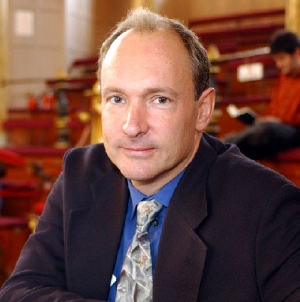

The UK needs to establish a set of definitive rules and regulations governing fair use of the Internet in order to ensure online privacy is protected, technology legend Sir Tim Berners-Lee has stated.
Speaking at the Web We Want Festival in London over the weekend, the inventor of the World Wide Web called for an online version of the Magna Carta, the 13th century document widely regarded as the first to ensure basic rights and freedoms for all.
“If a company can control your access to the internet, if they can control which websites they go to, then they have tremendous control over your life,” he said.
“A trusted Web is crucial to the UK’s future – our tech sector has led the way out of recession, creating more jobs than any other industry in recent years…A Britain in which people no longer trust the Web as a safe and private place will be a Britain that is less free, less creative and ultimately less prosperous.”
Sir Tim said that the upcoming 2015 General Election would be an ideal time for the nation’s leading political parties to propose and push through such a ruling, saying it was an opportunity for party leaders “to reverse this worrying trend by committing to end indiscriminate online surveillance and enact a new digital bill of rights.”
This is not the first time that Berners-Lee has called for the establishment of a digital “Bill of Rights”, having first made the suggestion during the 25th anniversary of the founding of the World Wide Web earlier this year.
Sir Tim, who has been a major supporter of the revelations from whistleblower Edward Snowden, said that the issue of protection for web users could be compared to the importance of human rights, and called on people to take a stand against surveillance and keep the Internet ‘neutral’.
“The people of the world have to be constantly aware, constantly looking out for (surveillance) – constantly making sure through action, protest, that it doesn’t happen,” he said in an interview with the BBC.
“Unless we have an open, neutral internet we can rely on without worrying about what’s happening at the back door, we can’t have open government, good democracy, good healthcare, connected communities and diversity of culture. It’s not naive to think we can have that, but it is naive to think we can just sit back and get it,” he said.
What do you know about public sector IT? Take our quiz!
Apple fined 150m euros over App Tracking Transparency feature that it says abuses Apple's market…
OpenAI to release customisable open-weight model in coming months as it faces pressure from open-source…
Samsung's Bespoke AI-powered fridge monitors food to create shopping lists, displays TikTok videos, locates misplaced…
Huawei sees 38 percent jump in consumer revenues as its smartphone comeback continues to gather…
In world-first, China approves commercial flights for EHang autonomous passenger drone, paving way for imminent…
Microsoft closes down IoT and AI lab it operated in Shanghai tech district in latest…
View Comments
Tim Berners-Lee, the very same person who is determined to allow encrypted media extensions (EME) in HTML5. It seems like he is trying to ride both horses at the same time.